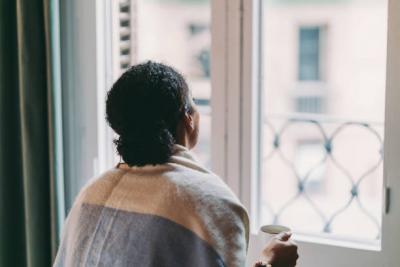International Women’s Day 2021: Exploring Child to Parent Abuse in Families of the African Diaspora in Britain.
My doctoral research project explores how child-perpetrated abuse or child-to-parent abuse (CPA) is commissioned, experienced and navigated within ethnic minority families in Britain. Although not an uncommon form of family violence, CPA remains understudied, and underrepresented in academic scholarship, policy spheres, public and political discourse on domestic violence. As a subtype of domestic abuse, CPA is gendered. According to a study conducted in the United Kingdom by Rachel Condry and Caroline Miles, mothers represent 77.5% of the victims. However, existing empirical research largely confines the exploration of CPA to Euro-American nations and its occurrence within White majority households. The findings inadvertently depict homogeneity in parents’ experiences of victimisation and in the factors that cause violence by their children. There are few accounts detailing the diverse experiences of this phenomenon, due to ethnic background, racial identity or even the non-traditional structure of the family (e.g adoptive parents, foster careers). It is here that my research will fill a gap.
Posted:
Time to read:
Existing clinical studies reiterate factors such as personality disorders, learning difficulties and mental health crisis. Although insightful, a preoccupation with ontogenetic factors risks leaving unexplored the possible impact of external factors such as sociocultural attitudes, and the experiences of structural racialization on familial relations in possibly creating combative environments conducive for child-to-parent abuse to occur. Drawing on literature from Black Criminology and Intersectionality, my enquiry explores child-perpetrated violence against black mothers by centralising their racial and intersectional identity as an empirical frame of reference. I consider their racialized experiences within Britain and explore whether participants perceive there to be links between external influences and the onset of CPA within their homes.

The image of the archetypal strong, black African mother enduring victimisation by anyone, least of all her child, conjures disbelief or the attribution of blame. Her disjuncture from western constructions of the ideal victim may legitimise a denial of compassion (whether perceived or actual), which can strongly deter help-seeking practices for this form of abuse. The invisibility of Black mothers in empirical research on CPA and also in police reports on the phenomenon may reflective their (non)reporting practices, due to concerns over state intervention into their homes. There is scope, in other words, and a pressing need to explore the alternative, coping strategies of battered black mothers. In particular, I am interested in whether and how their dependence on transnational family networks allow them to avoid requesting assistances from support services and, thereby prevent the criminalisation of their child.
To explore such issues I will hold interviews with affected mothers and focus groups to explore the inter-generational perspectives around the causes of CPA. In so doing, my doctoral research will not only explore motherhood and crime but specifically black motherhood within the context of domestic violence and the myriad forms it may take. The voices and experiences of black mothers continue to be largely overlooked within our field, despite continued commentary on the overrepresentation of their sons and partners within the justice system resounding through the discipline. Acknowledging black mothers as experts of their own experiences and intentionally seeking to understand how their accounts of victimisation and help-seeking are shaped by the intersections of their identity will help to diversify narratives around this sub-field of domestic violence.
Share:
